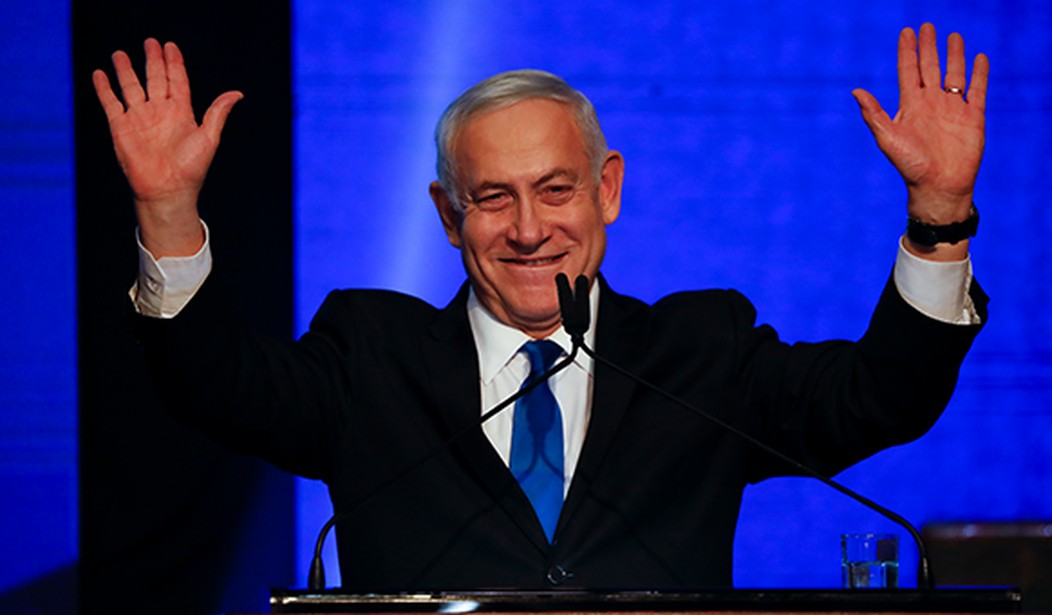The Palestinian attacks from Gaza and Arab riots in Israel have bolstered Prime Minister Benjamin Netanyahu’s political position to the point that, rather than being shown the door, Netanyahu may have ensured his continued survival — at least for a while.
The complicated mix of political parties in Israel has made governing more difficult. And the fact that the smaller parties are unable to coalesce to form a government — especially in a time of crisis — means that Netanyahu’s “caretaker” status will continue, perhaps indefinitely.
Following the election five months ago, Netanyahu’s government disbanded. But until a new government is formed, Netanyahu and his ministers remain in place. Netanyahu’s rivals for power — Yamina leader Naftali Bennett and Yesh Atid head Yair Lapid — were supposed to form a coalition government — a “change government” — but were unable to do so.
Then came the war in Gaza and Arab demonstrations in some cities and politics took a back seat to national security. Bennett was pressured by the Israeli right not to join the coalition with Lapid and Lapid was left with the remainders — small, quarrelsome religious parties. It’s unlikely that the smaller parties will all agree on national security issues — critical during a time Israel finds itself under attack.
So, almost by default, the job falls to Netanyahu.
“These politicians will no longer be held accountable for making such a decision,” analyst Mitchell Barak told the Jerusalem Post, adding that if Israel did go to fifth elections, Netanyahu will be able to run on the “who do you want dealing with Hamas and the Israeli Arabs” question.
On May 12, Lapid wrote a long and impassioned plea to move forward with the ‘change government’ despite the escalation. He said that “Hamas will not control our lives” and that “the rioters in Lod and Acre will not control our lives.” He told the Israeli public that “we are not afraid of them.”
But as two-thirds of Israelis are under threat of rocket attack and more people die, the citizens are very much afraid.
THE PRIME minister always looks good when there is crisis and chaos, and he is milking this latest escalation to reinforce his reputation as a strong leader who is tough on terror – and the only leader who can deliver a mighty blow to Hamas and the Islamic Jihad terrorist organizations.
More to the point, the Israeli citizens trust Netanyahu with their security. That he’s a “strong leader who is tough on terror” is both politically advantageous and what Israel needs.
Is it possible the prime minister who has led Israel for the last 12 years might surprise everyone and cobble together a coalition to continue in power?
But the more likely scenarios are that either Netanyahu, with Bennett’s support, could pull together a coalition – or the country will head into a fifth election, a move that would plunge Israel into another six months of political instability and paralysis.
Either way, Netanyahu would remain at the helm, a scenario that had not seemed possible just a week ago.
Netanyahu is dealing with the political crises of war and his trial for political corruption. And if there’s one thing Netanyahu’s enemies continue to do it’s underestimating his resiliency. Benjamin Netanyahu should be down and out, but he still may be prime minister six months from now.










